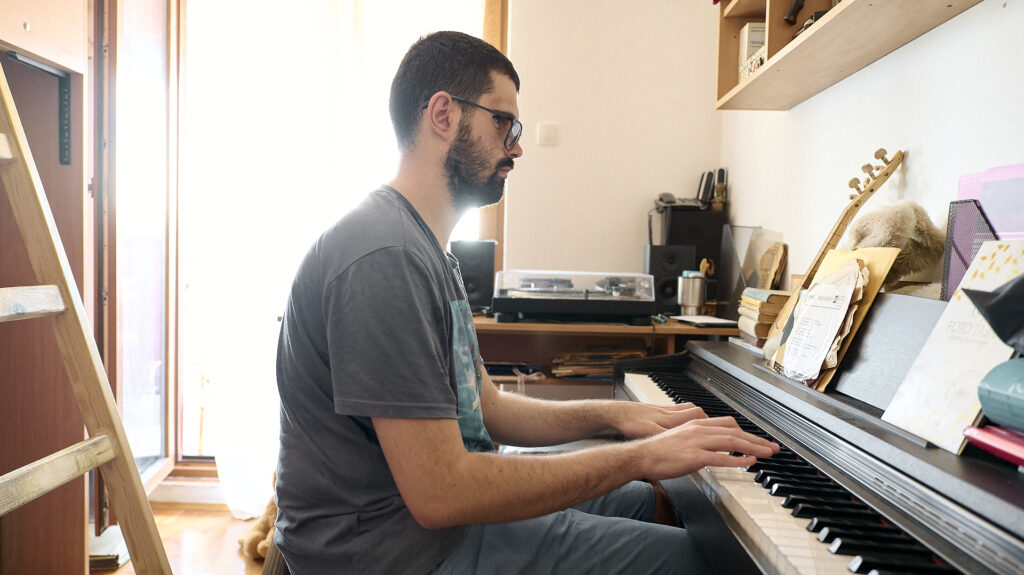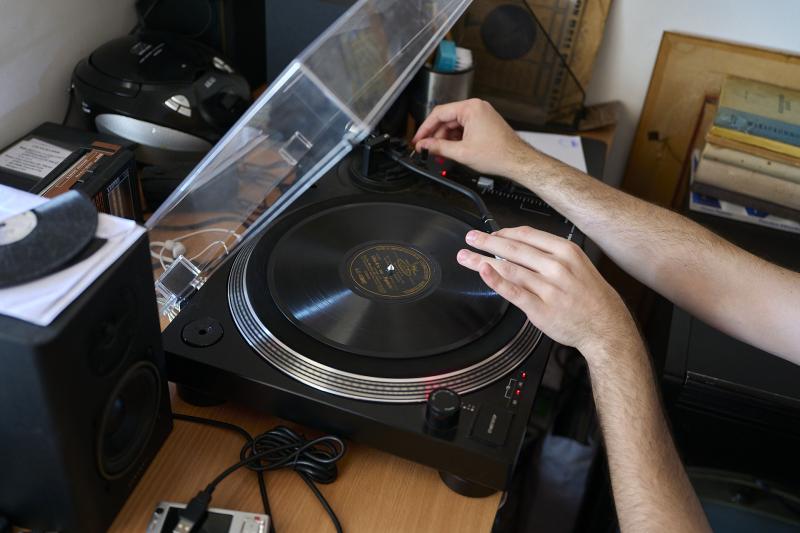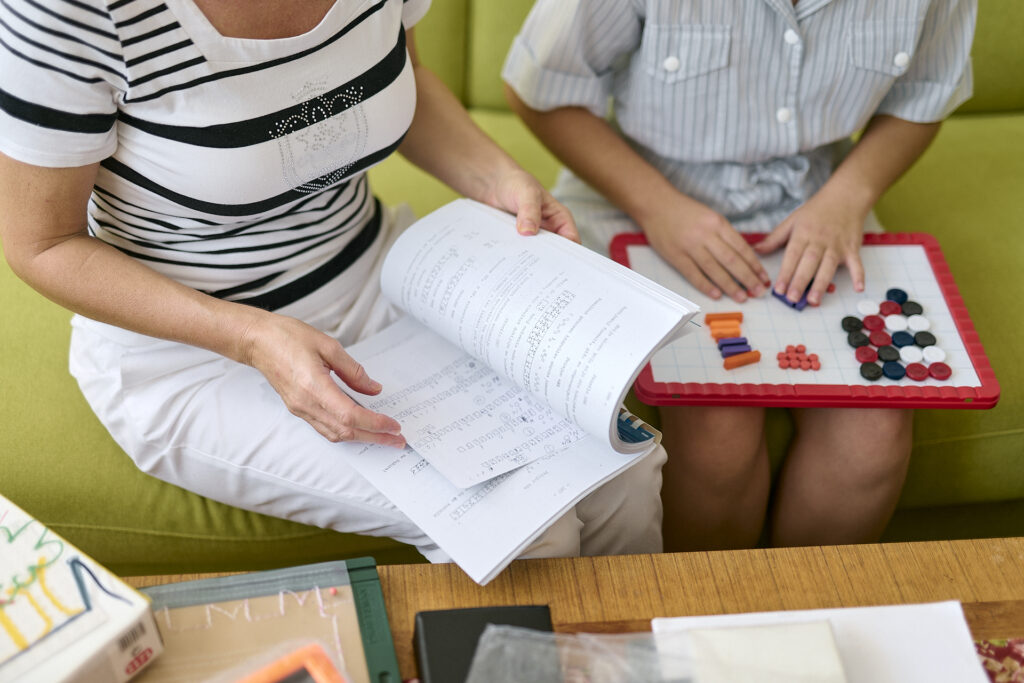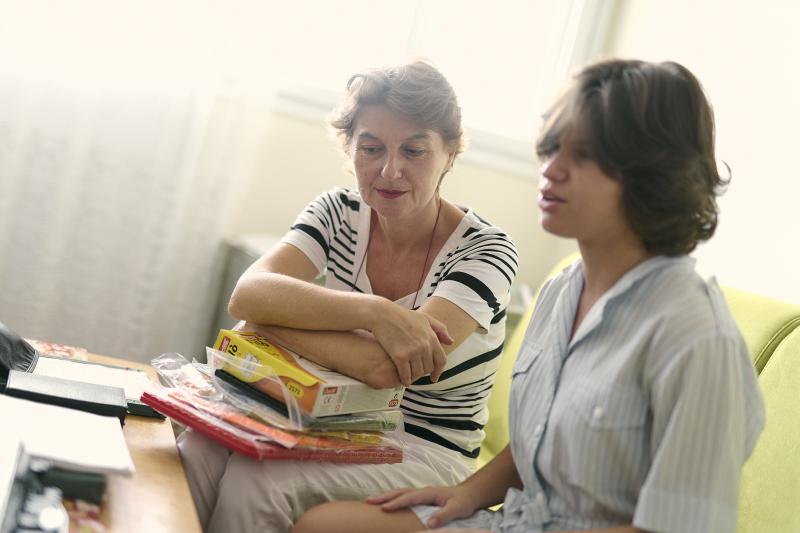Despite the introduction of inclusive education, the Montenegrin educational system does not provide equal opportunities for education to everyone. Sofija Ivanović, a talented first-year student of the secondary school Gymnasium in Podgorica, and Nikola Zekić, who holds a master’s degree in ethnomusicology, emphasize that the right to education is a fundamental human right. However, their experience shows that realizing this right remains a challenge for numerous generations of people with disabilities.
“They used to tell me that I couldn’t paint. They wondered how a person with visual impairment could paint. I proved them wrong and showed them that I could. I can do much more than that”, Sofija says.
Montenegro ratified the UN Convention on the Rights of Persons with Disabilities in 2009, and thus committed itself to ensure access to education and prevent discrimination based on disability.
“Unfortunately, an incorrect opinion is widespread in Montenegro, that activists and anyone who sticks out even a little are asking for something more and something different from other people, some kind of special treatment. Actually, we just want to exercise our basic rights, and the right to education is one of them”, Nikola says.

Inclusion implies full inclusion of persons with disabilities in all spheres of social life, and education is certainly one of them. The lack of accessible literature is one of the barriers on the way to exercising this fundamental human right, as it hinders independence in access to textbooks and other educational material.
Faced with the lack of textbooks in Braille during the educational process, both Sofija and Nikola often rely on the help of their parents and teachers for translation and preparation of materials to be printed.
“When I started playing the piano, most of the books were not accessible to me and did not exist in Braille. I had to get by and, in the case of piano books that I didn’t have, my teacher used to dictate the notes to me, and I would write the notes down and that’s how I learned them”, Nikola says.
He believed, he says, that future generations would not have to get by as much as he had to. However, when he was hired as Sofija’s teaching assistant, he was disappointed to see that, after so many years, Sofia was facing the same problems.
“I learned notes by having the teacher show me the correct fingering and notes in class, and immediately after the lessons at the music school, I would go home to practice all the required materials and not forget what I had learned”, Sofija describes.
Initiatives such as the multimedia edition of the printed book (DAISY textbook) make it easier to access the educational material, but are still limited to some subjects taught only in primary schools only, and do not provide an adequate opportunity for quality education. On the other hand, there is no literature in Braille at universities, which makes the educational process for students with visual impairments significantly harder.
Montenegro is in the process of ratifying the Marrakesh Agreement, which will be a step forward to facilitate the access to printed works for persons with visual impairments in accessible formats such as Braille, audio books and enlarged fonts. The implementation of this agreement will enable exchange of literature in adapted formats between states, as well as its production in the signatory state.

Support from an assistant during the education process is of extreme importance for persons with disabilities. The role of teaching assistants is primarily reflected in technical assistance in terms of providing access to education and educational achievement. They are expected to provide help in accessing the school, the classroom and the teaching process, which includes writing, counting, handling educational supplies, performing graphomotor movements or practicing physical exercises. However, the experiences of people with disabilities indicate that a wider scope of assistants’ tasks is needed.
On the other hand, lack of assistants, as well as their insufficient training, limit the effectiveness of these services in practice. Laws in the field of primary and secondary education provide for the possibility to have a teaching assistant, while this matter is not legally governed in the field of higher education. As a result, many persons with disabilities decide not to continue their education, drop out of university, and face difficulties in achieving their educational and career objectives.

Parents often take on the role of assistants during education, which further increases the cost of living. Nikola’s and Sofija’s parents thus translated and printed textbooks for them. Moreover, Sofija’s parents made or bought from abroad numerous didactic aids so that she could more easily master mathematics, chemistry or physics. In primary school, Nikola’s teacher used her embroidery to teach them the coordinate systems, and explained fractions with the help of baklava cake. However, there are not many such enthusiasts among teachers, and the biggest burden is still on the parents.
“As for education, in the early years, apart from a Braille machine, the only thing needed are enthusiasm, love and a little bit of creativity. Everyone can find that in themselves. If you don’t have any material, it’s enough to take a piece of paper, a pencil that is sharpened, and jab what you need so that the child can feel it on the other side”, says Snežana, Sofija’s mom.

According to the available data, people with disabilities most commonly enrol in secondary vocational courses. They choose this path due to the lack of adequate support and the limited options in educational directions that offer broader professional perspectives. This underscores the need for serious efforts to fully establish a policy of inclusive education in secondary schooling. As regards higher education, the situation is further complicated by the fact that the issue of teaching assistants is not regulated by law, which makes it impossible for people with disabilities to realize their full potential and ensure opportunities to better position themselves in the labour market.
Nikola completed a part of his schooling in the United States of America, where he, as he puts it, experienced what it is like to study in an educational system that is actually oriented towards providing equal conditions for each individual’s educational attainment, regardless of their personal characteristics.
“To compare America and Montenegro in terms of education is like comparing two landscapes of two different planets, Mars and Mercury, for example. In the US, you get what you look for and the education is truly oriented towards an individual. Because not even two individuals with impaired vision share the same needs. There is professional and educated staff, a legal framework, and not just goodwill of enthusiasts. There are also consequences if someone does not comply with the laws, something called personal accountability”, Nikola says.
Sofija, who started the secondary school Gymnasium in Podgorica this year, says that the opportunities for accessible education are extremely important to her, because they open the door for her to exercise her rights, achieve goals and accomplish plans for the future.
“My parents have taught me the sky is the limit and I was raised to be open-minded. Through education, first at home and then at school, I have discovered things that I like to do and that I could find myself in later, when the time is right to choose my vocation”, says Sofija, who plays piano exceptionally well, sings, speaks French and has won numerous awards and diplomas.

Nikola is also clear that surrender is not an option. He is of the opinion that one should believe in a better tomorrow and not sit idly by in the meantime, but rather make the best of what they currently have.
“Let’s ‘hammer’ it into people’s heads, with our everyday efforts and deeds, that we are neither victims, heroes, people of courage, but rather people who just want to live their lives”, Nikola concludes.
Education for persons with disabilities in Montenegro is not only a matter of rights, but also a key step towards an inclusive society in which every individual has the opportunity to realize their full potential.
Significant progress in providing conditions for equal access to the education system for all persons with disabilities will be achieved through implementation of the structural reform of the disability assessment system.
The new disability assessment system will be based on the human rights model, which in practice will mean that the disability assessment process will focus on identifying barriers that persons with disabilities face and providing support to overcome them, with the aim of creating opportunities for their independent life in the community. The project “Reform of the national disability determination system” is implemented by UNDP together with the Government of Montenegro and civil society organizations, and with financial support provided by the European Union.



